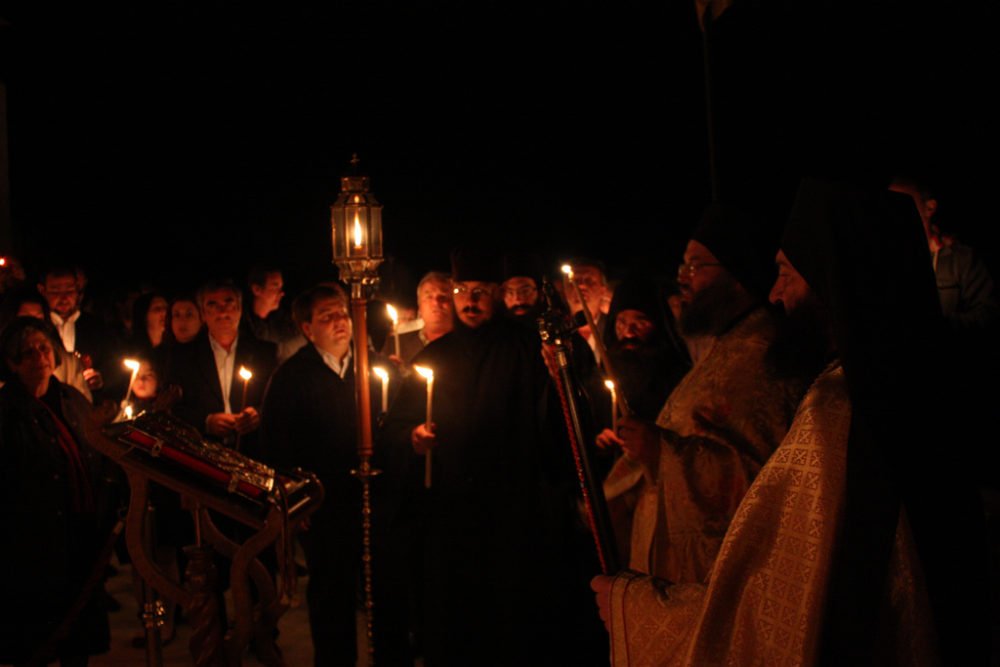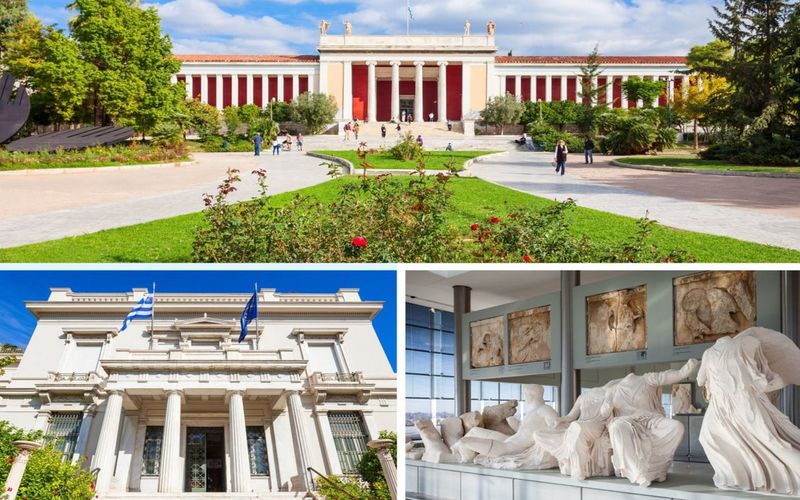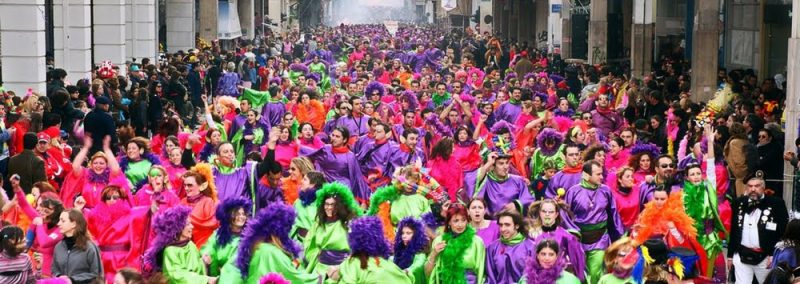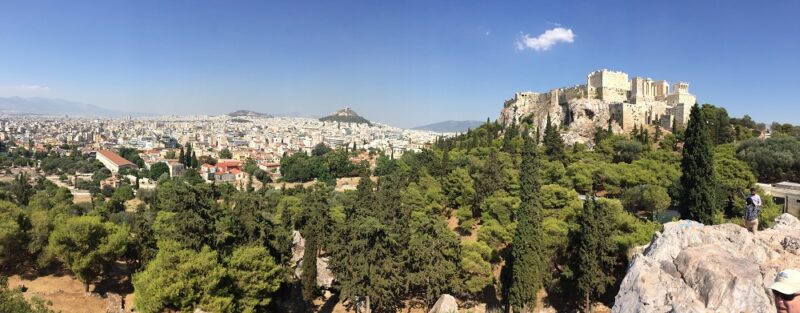Easter in Greece is a beautiful festival. In fact, it’s more widely celebrated than Christmas. Of course, it’s a religious festival celebrating the resurrection of Christ. But it’s also an opportunity to celebrate and eat well.
Here are just a few of the customs and practical information (calendar, churches, restaurants) to make the most of Easter in Greece.
The Lenten season

First of all, seven weeks before Easter Day itself, Lent begins. It is preceded by the Carnival.
Clean Monday, also called Pure Monday marks the first day of Lent. It’s a chance to fly kites and eat shellfish, as meat, fish, eggs and cheese are forbidden. This period of fasting is still very much with us (at least in our minds).
Finally, the last week of Lent, Holy Week, known in Greece as the “Great Week”, is marked by numerous traditions. Easter week is both sad and joyous, as the faithful commemorate first the crucifixion and then the resurrection of Christ. During this period, fasting is taken much more seriously. So if you eat in a tavern on the Friday or Saturday before Easter, you won’t necessarily find any meat. And religious ceremonies take place once or twice a day.
Maundy Thursday: Preparations for Easter
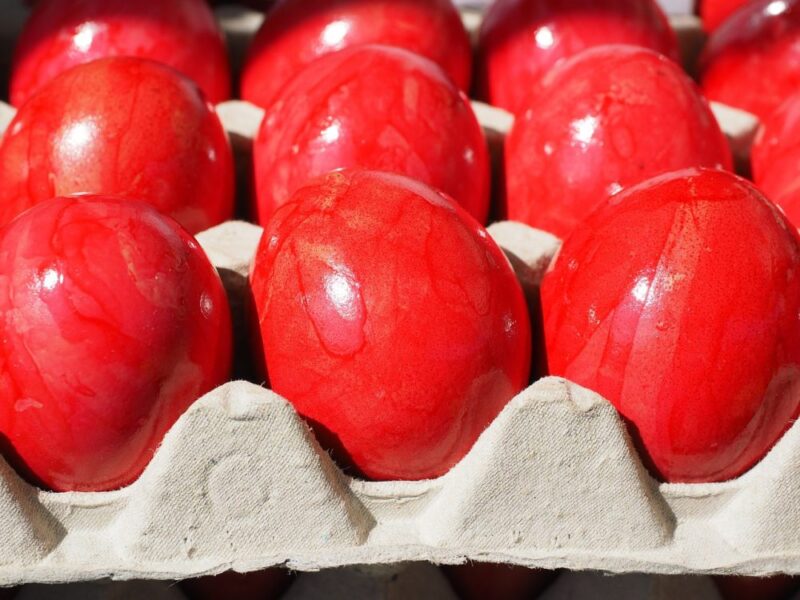
Maundy Thursday is devoted to preparations for Easter. And in particular, the making of Easter brioches and, above all, red eggs.
In Greece, of course, you’ll see lots of chocolate eggs everywhere in bakeries, but what’s more surprising are the red eggs. To commemorate Christ’s last supper, the eggs (real ones) are boiled and dyed red. Eggs symbolize life, while red represents the blood of Christ. They will be used to decorate and celebrate the resurrection. On Sundays, young and old alike have fun “cracking” them by banging them against each other in amazing battles. And victory goes to the player who manages to break both ends of his opponent’s egg (without breaking his own).
At the church, preparations are also in full swing. The Cross of Christ crucified stands in the center of the church. It’s a sad day, since it’s the day of the last supper and Judah’s betrayal. The white candles aren’t out yet (only the beige ones are lit) and the chanting sounds like lamentations.
The epitaph: Christ’s tomb on Friday
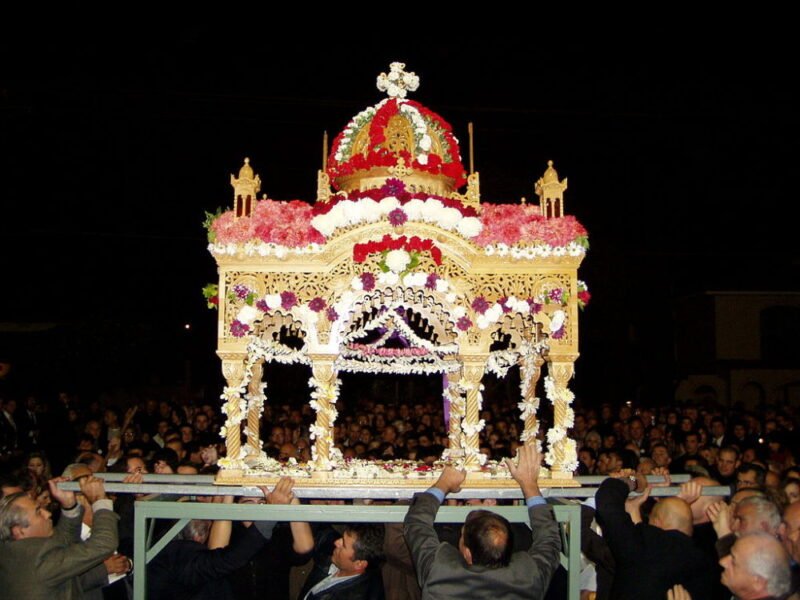
On Good Friday, you’ll hear a lot of bell-ringing. In the church, the women prepare the epitaph, decorating it with flowers. It symbolizes Christ’s tomb.
It’s only at dusk that the procession begins. The epitaph is carried by young men, followed by the pope and the crowd of faithful. You can easily join the procession, even if you’re not a believer, but you’ll still be able to pay your respects.
When the procession is over, the pope distributes the blessed flowers that people take home to protect their homes.
You’ll find these processions in and around many parts of Athens. But we particularly recommend:
- Holy Church of Saint Irene – Agia Irini (Monastiraki metro station) to listen to hymns sung by the Greek-Byzantine choir
- Holy Church of Saint George Karykis – Agios Georgios (Karytsi Square) to watch the procession organized by the Greek Navy and listen to the hymns sung by the same troupe for over 120 years.
Resurrection feast

On Saturdays, the day gets livelier, starting with morning mass. Let’s make some noise! And the bells are ringing. On Corfu, it’s customary to break jugs, while in other places people strike the kneelers.
It’s also the festival of light. Straight from Jerusalem, the sacred fire of the Holy Sepulchre is then flown to Athens in the Church of the Holy Anargyres.
Don’t miss the Easter Vigil (Easter evening mass). It usually starts around 10:30-11pm and finishes at midnight. The atmosphere is often relaxed. The faithful crowd in and out of the church as the Pope recites the Gospel. At exactly midnight, the pope announces the resurrection “Christos Anesti” and passes the light to all the faithful. Don’t forget to buy a candle to take part in this great communion.
With the light, the fireworks begin. Hugs, laughter, bells ringing (again!). Everyone keeps their candles burning to take home. Because tradition doesn’t stop at the doors of the Church.
Back at home, we mark the doorway with a cross made from the candle and light an oil lamp or large candle with the light of the resurrection. It’s also after mass that we break up the young with a very special Mayerepsa soup (a mixture of tripe and lettuce leaves!).
Easter Sunday in Greece: culinary traditions
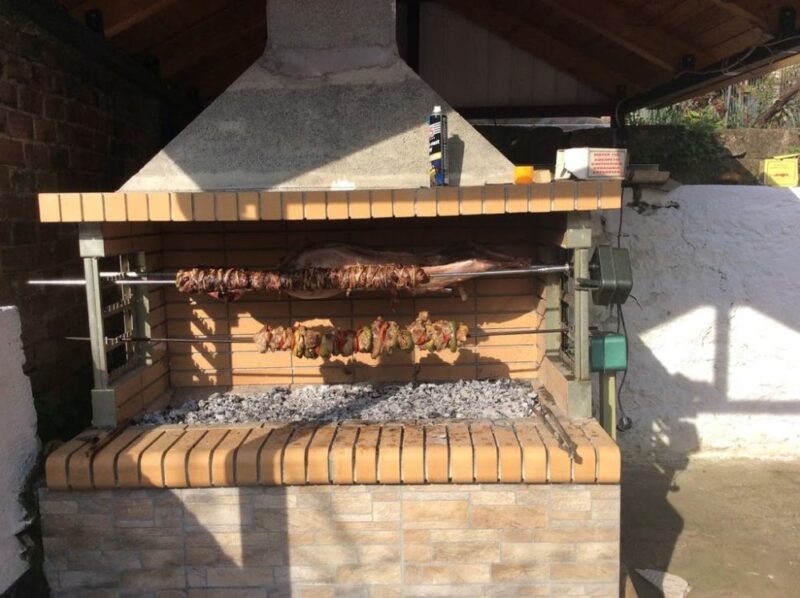
On Easter Sunday, families usually share a big, hearty meal. Because after Lent, it’s a feast!
First of all, lots of meat, starting with lamb. It’s cooked on spits, in gardens, along the roadside and in taverns. Well-roasted lamb is delicious, so take this opportunity to enjoy it. Another tradition is Kokoretzi (a bit like our andouillette or our “fricandelle”). No one knows for sure what’s inside, but it’s mostly offal… so let’s give it a try!
If you’re in Athens on Easter Sunday, you’ll find several traditional grilling taverns open, notably in Plaka in the old town, where you can enjoy grilled lamb or other meats cooked on a spit
Practical information
The 2025 Easter calendar in Greece
Please note that the calendar for Orthodox Easter is different from that for Catholic Easter:
- Palm Sunday: April 13, 2025
- Maundy Thursday, April 17, 2025: morning and evening masses
- Good Friday, April 18, 2025: epitaph procession at dusk
- Holy Saturday, April 19, 2025: morning mass and wake with lights and fireworks
- Easter Sunday in Greece is April 20, 2025: hearty Pascal lamb lunch
- Easter Monday is April 21, 2025.
Where to attend mass in Athens?
We particularly recommend the Church of Saints Anargyres, the Church of Saint George Lycabetta and the Church of Saint Dimitri at the foot of Filopappou Hill.
Eating out on Easter Sunday
If you want to enjoy a delicious lamb on the spit (mechoui), we strongly advise you to move away from the town center and visit the tavernas in the surrounding hills (Penteli, Hymittos, Parnita). Book a table early, because everything fills up fast!
Where to buy eggs?
You’ll find them in supermarkets pre-painted or to dye yourself. Eggs sold red are hard-boiled eggs. And to paint your eggs red the natural way, Evi gives you a few secrets.
Can you attend mass without being a believer?
No problem. Just take care to respect the moments of recollection.
You’ll be amazed at the number of Greeks who attend Easter ceremonies (some out of religious fervor, others out of tradition). So even if you’re not a believer, don’t hesitate to join in.
Public holidays
At Easter in Greece, many shopkeepers close up store to go home to their families. The city is usually empty from Friday until Monday. Museums are also closed on Saturday, Sunday and Monday.
To find out about the Easter program in Athens and practical information (store opening times, museum closing days, etc.), see our article Easter in Athens: celebrations, children’s activities and practical information.
Happy Easter!
Sophie B.
